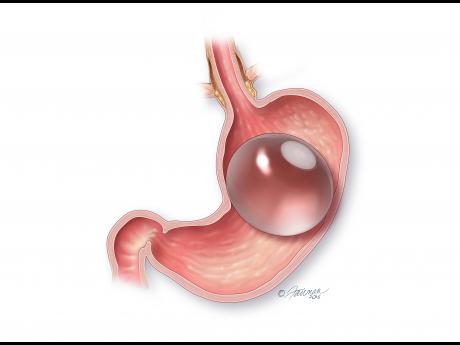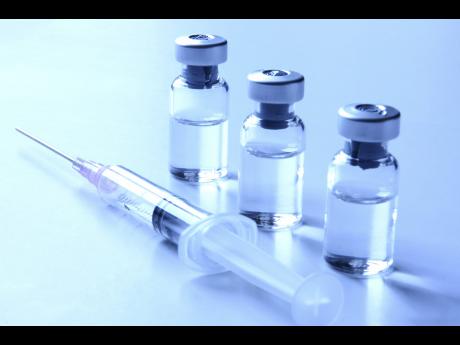Dr Alfred Dawes | Effective weight loss without surgery
Obesity is a disease just like diabetes, cancer and high blood pressure. Once your weight for your height (body mass index - BMI) is high enough, your chances of losing and keeping off the weight are five to 10 per cent. At this point, the best results are obtained with surgery to shrink the stomach and/or decrease the amount of food digested.
'Obesity' is different from 'overweight' and this is not just a matter of numbers. You are:
- Overweight if your BMI is between 25 and 29.9.
- Mildly obese if your BMI is 30 to 34.9.
- Moderately obese at 35 to 39.9.
- Severely obese once your BMI is 40 or higher.
Changing your lifestyle can result in permanent weight loss at any stage, but it gets harder and harder as your BMI gets higher. This is why it is extremely important that persons who are overweight begin to take control of their eating habits and not get to the point of obesity where their hormones are going haywire and their body is trying to keep them obese.
'MIRACLE' WEIGHT-LOSS PRODUCTS
As it is so difficult to do it on your own, many companies are offering 'miracle' weight-loss products that can help one achieve significant weight loss without going under the knife. However, the short-term successes are eventually replaced by weight regain as the food restrictions become unsustainable and the supplements unaffordable.
Diet plans and weight-loss programmes are very effective but require commitment and discipline. Commitment is directly related to results. Once the inevitable weight-loss plateau occurs, it requires even greater discipline to cut more calories in order to lose more weight.
Several non-surgical options are available to increase the weight loss in a weight-management programme, leading to greater motivation and compliance. This will, in turn, lead to greater success in losing and maintaining weight.
DIET PILLS
Diet pills aid with appetite control or decrease the absorption of consumed food. They may aid in the short term but are not a magic bullet by themselves. With a structured weight-management programme, diet pills can be a very effective tool. Some appetite suppressants have been taken off the market because of reported deaths. The commonly used pills block the absorption of fats or carbohydrates consumed. The undigested nutrients pass out in the stool. Some of the side effects, such as bloating and soiling of underwear, however, may not be tolerable if present.
ENDOBARRIER
Although still classified as experimental, the EndoBarrier is a plastic-like tube that is placed in the intestine through the mouth. It prevents the food leaving the stomach from mixing with digestive juices in the intestines. Less food is digested and absorbed, leading to weight loss and improvement in diabetes. As it is placed endoscopically, there is no general anaesthesia and no surgical incisions. As the evidence supporting its safety and effectiveness is gathered, we should see more persons being offered this non-operative solution.
GASTRIC BALLOONS
The gastric balloon is literally a balloon made of silicone that is placed into the stomach through the mouth and filled with fluid. Gastric balloons are particularly attractive to persons who want to lose 30 to 70 pounds and are not interested in undergoing general anaesthesia or a permanent surgical solution.
The balloons are removed endoscopically through the mouth after six months or up to one year. The balloon fills the stomach, leaving less space for food. It also slows the exit of food from the stomach. With less food being eaten and less hunger being experienced, persons can lose significant weight if they stick to the accompanying programme geared towards changing eating habits for life after balloon removal. Newer balloons, such as the Spatz balloon used at ILAP, can be adjusted in size if the weight loss plateaus and the patient desires more weight loss over the year.
GASTRIC ASPIRATION
Gastric aspiration is a recently approved weight-loss procedure that allows you to remove food recently eaten from the stomach. A small tube is placed endoscopically in the stomach and connected to a device under the skin. After eating, a pump is used to suck out up to 30 per cent of the food from the stomach. This allows the person to eat a full meal but digest less calories. Critics of the device say it does nothing to aid in developing healthy eating habits that are needed to sustain long-term weight loss.
HCG INJECTIONS
The HCG diet has gained popularity in recent years due to the rapid weight loss achieved by persons placed on the programme. The key components are hormonal injections or drops and a severe caloric restriction of 500 calories per day from only a specific set of foods. Proponents claim that the HCG gets rid of hunger pangs, allowing dieters to stick with the starvation diet.
My personal experience with HCG is that quite a number of persons who were on HCG lost a significant amount of weight but regained or surpassed their initial weight once they came off the diet. The reason is that persons on the diet lose muscle mass in addition to fat and, in so doing, slow down their metabolism to below what it was before the diet, setting them up for weight regain.
Despite evidence showing HCG shots are no more effective than no additional treatment when on a 500-calorie diet, the popularity of the diet continues to grow.
Whatever the option you choose to aid your weight loss, one thing must be clear. Obesity is a chronic disease. It doesn't just go away once you lose weight. It is in remission, just waiting for your eating habits to change or your physical activity to decrease so it can return with a vengeance. Your best bet is to never get obese. If you already are then you have to treat it like the cancer it is; put it in remission, and never give it a chance to return.
- Dr Alfred Dawes is a general, laparoscopic and weight-loss surgeon; fellow of the American College of Surgeons; senior medical officer of the Savanna-La-Mar Public General Hospital; and former president of the Jamaica Medical Doctors' Association. Email: info@islandlaparoscopy.com; yourhealth@gleanerjm.com.



